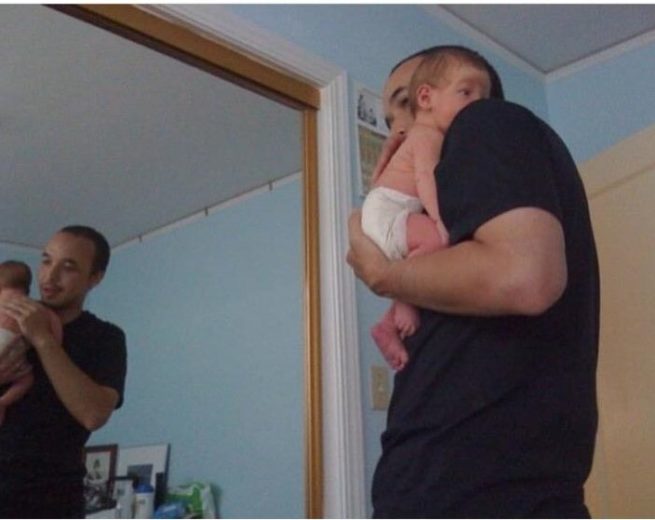
WHAT DOES THE LAW SAY?
Despite the benefits everyone gets from fathers being home, in the U.S. the responsibility of paid family leave falls mostly to private employers. The result is predictable. Only 16% of all American workers can take paid time off to care for a newborn, recently adopted child or a sick loved one.
Many workplaces still have separate, less generous benefits for men. A survey from the Society for Human Resource Management reports that only 29% of companies have some form of paid leave for fathers. Larger companies have a slightly higher percentage (48%). Even when generous policies exists, taking leave without adverse career consequences is rare. In fact, JP Morgan Chase recently agreed to pay $5 million dollars settled a lawsuit from male employees who accused the financial giant of denying them the same amount of time off as mothers.
The federal Family Medical Leave Act (FMLA) is an option when jobs don’t provide time off. It guarantees 12 weeks of protected leave for workers who are caring for a loved one for pregnancy, sickness or other temporary disability. However, the law only guarantees that workers can’t be fired. It does not provide financial benefits.
“The problem is that FMLA was designed just to offer job protected leave, but not everyone is eligible,” said Jennifer E. Brown, Economic Policy Analyst for national civil rights organization UNIDOS US. “Only 60% of workers — and 50% of working class families and 43% of Latino families— are even eligible.”
This is mostly due to the high concentration of Latinos in industries and sectors that are either not covered by FMLA. Or alternatively, traditionally rely on temporary or seasonal work like construction and agriculture.
“That’s a lot of economic stress,” said Brown. “It takes more than one person to make a family run.”
As a California resident, Santiago had access to the nation’s oldest state PFL program, Family Temporary Disability Insurance. In the 17 years since the program’s passage, four additional states and several dozen local jurisdictions have enacted their own family leave laws. Depending on the circumstances, workers receive a majority of their base salaries.
“If family comes first, then paid parental leave should be a part of it,” stated Santiago. “If you don’t have that time early on, you are really missing out on important bonding and connections.”
